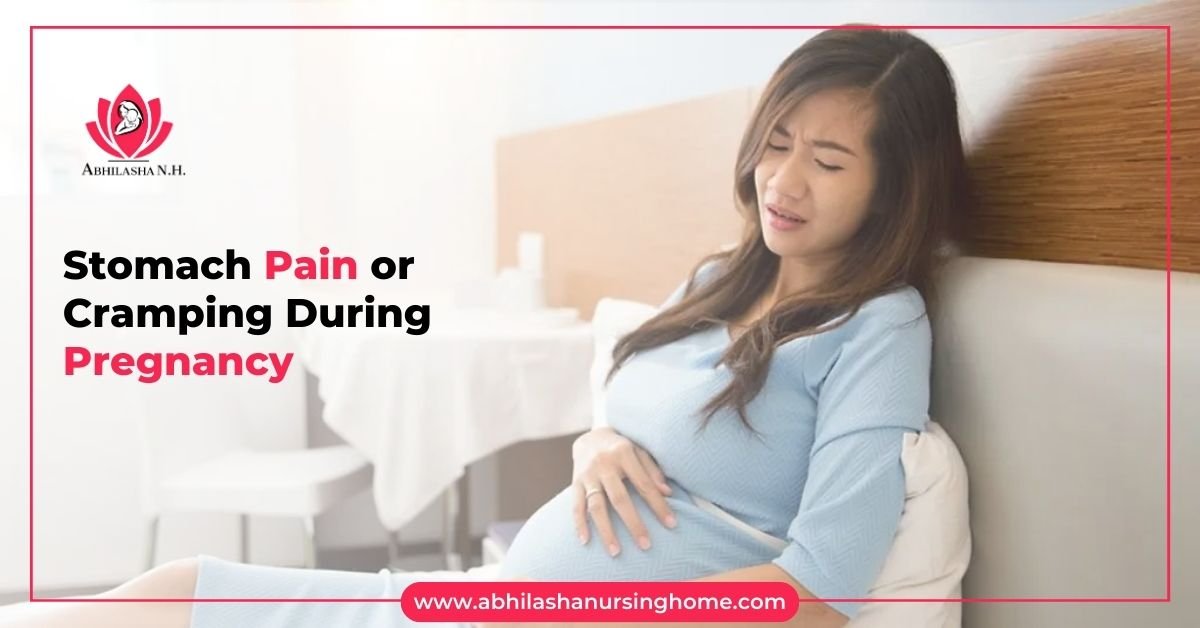Experiencing stomach pain or cramping during pregnancy is a common concern for many expectant mothers. While it can be a regular part of the pregnancy journey, it’s essential to understand the potential causes and know when to seek medical attention.
Stomach Pain In Pregnancy
Stomach pain in pregnancy can range from mild discomfort to severe pain. It is essential to differentiate between regular pregnancy-related changes and symptoms that may indicate a more serious issue.
Reasons for Stomach Pain During Pregnancy
1. Digestive Issues
Digestive problems are common during pregnancy due to hormonal changes that slow the digestive system. This can lead to gas, bloating, and constipation, causing stomach pain and cramps during pregnancy.
2. Muscle Strain
As the uterus expands, it can cause muscle strain and ligament pain, often called round ligament pain. This pain is usually sharp and localized, frequently occurring on one side of the abdomen.
3. Braxton Hicks Contractions
Braxton Hicks contractions are irregular, painless contractions that can occur throughout pregnancy. These “practice contractions” can cause cramps during early pregnancy but are not a sign of labor.
4. Ectopic Pregnancy
An ectopic pregnancy occurs when a fertilized egg implants outside the uterus, often in a fallopian tube. This condition can cause severe abdominal pain and cramps during early pregnancy and requires immediate medical attention.
5. Preeclampsia
Preeclampsia is a pregnancy complication characterized by high blood pressure and signs of damage to other organs, often the liver and kidneys. Severe stomach pain, particularly in the upper right quadrant, can be a symptom of preeclampsia.
6. Premature Labour
Premature labor occurs when labor starts before 37 weeks of pregnancy. Signs include regular contractions, back pain, and cramping. If you suspect premature labor, contact your healthcare provider immediately.
7. Miscarriage
Miscarriage is the loss of a pregnancy before 20 weeks. Symptoms include cramping during early pregnancy, vaginal bleeding, and lower back pain. If you experience these symptoms, seek medical advice promptly.
8. Urinary Tract Infection
Urinary tract infections (UTIs) are common during pregnancy and can cause lower abdominal pain, frequent urination, and a burning sensation when urinating. UTIs should be treated promptly to prevent complications.
9. Placental Abruption
Placental abruption is a severe condition where the placenta detaches from the uterus wall before delivery. Symptoms include sudden, severe abdominal pain, back pain, and vaginal bleeding. This requires immediate medical intervention.
10. Labour
Labour pain is characterized by regular contractions that increase in intensity and frequency. As labor progresses, the pain can become more severe and spread to the lower back and pelvis.
Stomach Pain During Pregnancy – When to Worry?
While some stomach pain in pregnancy is normal, specific symptoms should prompt immediate medical attention:
- Severe or persistent pain that does not go away
- Pain accompanied by heavy bleeding or passing clots
- Severe cramps pregnancy
- Fever, chills, or difficulty breathing
- Pain that radiates to the shoulder or neck
- Sudden, sharp, or stabbing pain
If you experience any of these symptoms, contact your healthcare provider immediately. It is better to be cautious and seek professional advice to ensure your and your baby’s safety.
Conclusion
Stomach pain or cramps during pregnancy can be a regular part of the journey, but it is essential to recognize the signs that require medical attention. Understanding the potential causes of 1 week pregnant stomach pain, such as digestive issues, muscle strain, Braxton Hicks contractions, ectopic pregnancy, preeclampsia, premature labor, miscarriage, UTIs, placental abruption, and labor, can help you navigate this challenging time with greater confidence. Always consult your healthcare provider if you have concerns about stomach pain or cramping during your pregnancy to ensure the best outcomes for you and your baby.

